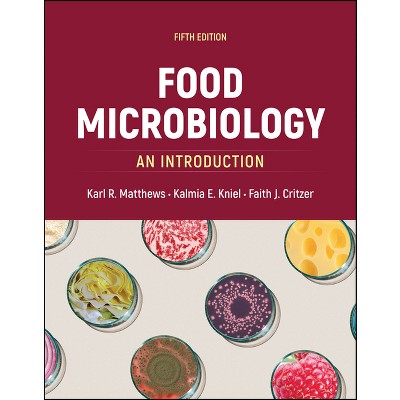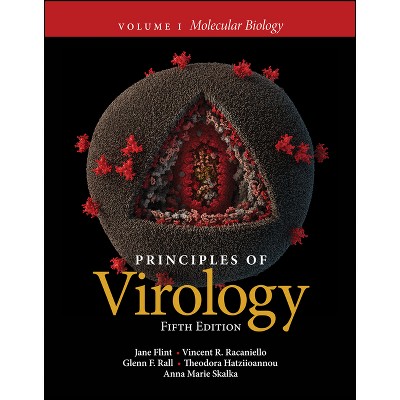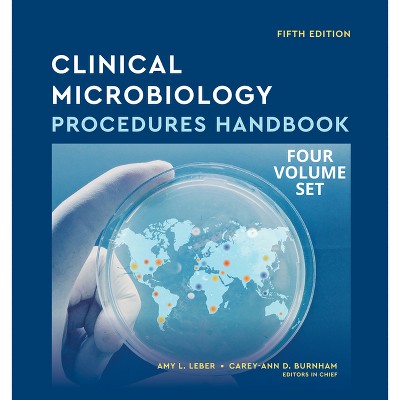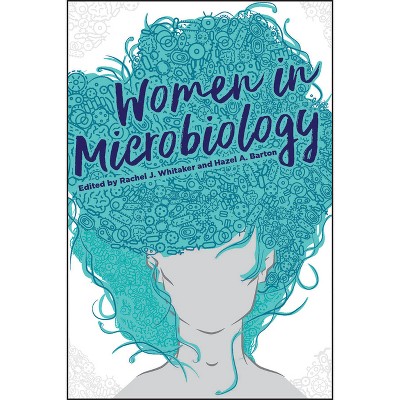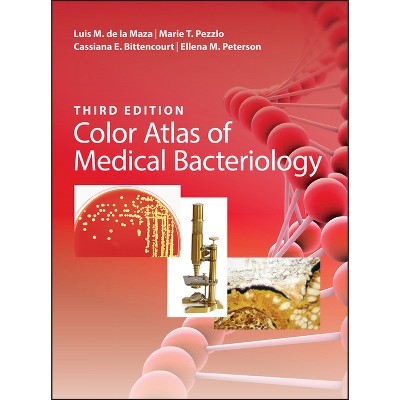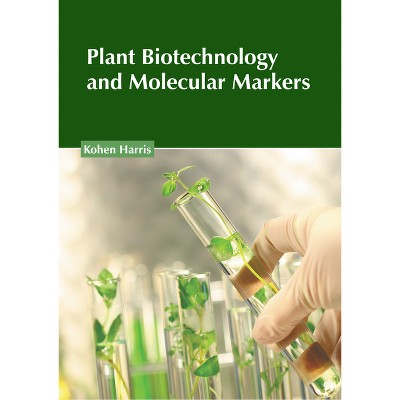Molecular Biotechnology - (ASM Books) 6th Edition by Bernard R Glick & Cheryl L Patten (Hardcover)

About this item
Highlights
- Molecular Biotechnology Molecular Biotechnology Principles and Applications of Recombinant DNA SIXTH EDITION An authoritative introduction to the fast-changing world of molecular biotechnology In continuous publication since 1994 and now in its sixth edition, Molecular Biotechnology: Principles and Applications of Recombinant DNA has been effective in introducing this complex field to students for more than 25 years.
- About the Author: About the Authors Bernard R. Glick, PhD, is a distinguished professor emeritus at the University of Waterloo, Ontario, Canada, where he was the chair of biology from 2002 to 2008.
- 896 Pages
- Science, Life Sciences
- Series Name: ASM Books
Description
About the Book
"Each chapter opens with an outline of topics and concludes with a summary and list of review questions to sharpen students' critical thinking skills. All of the key ideas in the book are illustrated by the more than 600 full-color figures and elaborated in more than 100 tables. After introducing molecular biotechnology as a scientific and economic venture in Chapter 1, the next two chapters explain the detailed methodologies of molecular biotechnology. These chapters provide a solid scientific base for the remainder of the book. Chapters 4 to 8 present examples of applications for microbial molecular biotechnology covering such topics as diagnostic techniques, both protein and nucleic acid therapeutic agents, vaccines, bioremediation of pollutants, the production of metabolites, and biomass utilization by industry. Chapter 9 describes some of the key components of large-scale fermentation processes using recombinant microorganisms. Chapters 10 to 12 describe the molecular manipulation of plants and animals addressing both fundamental approaches and a wide range of applications, with a particular emphasis on agricultural improvements The book concludes in Chapter 13 with a discussion of the interaction of molecular biotechnology with society including some discussion of controversies that have occurred as a consequence of this technology, coverage of the regulation of molecular biotechnology and patents"--Book Synopsis
Molecular BiotechnologyMolecular Biotechnology
Principles and Applications of Recombinant DNA
SIXTH EDITION
An authoritative introduction to the fast-changing world of molecular biotechnology
In continuous publication since 1994 and now in its sixth edition, Molecular Biotechnology: Principles and Applications of Recombinant DNA has been effective in introducing this complex field to students for more than 25 years. This textbook covers essentially every aspect of the field of molecular biotechnology, which is constantly changing and adapting in light of new advances.
This edition includes the latest techniques in DNA sequencing and genetic engineering of microbial, plant, and animal genomes, including human genome editing, as well as updates across many areas, such as:
- Immunological assays for disease diagnosis, more effective bacteriophage therapy, and new ways of dealing with antibiotic-resistant bacteria
- New and developing vaccines for influenza, tuberculosis, and emerging viral threats, including Zika and SARS-CoV-2
- Engineering bacteria to perform plastic degradation and green algae to produce hydrogen, altering amino acid biosynthesis, and creating designer cellulosomes
- Production of humanized monoclonal antibodies in plants, modifying hybrid plants to produce clonal hybrids, and protecting plants from viral and fungal diseases
Molecular Biotechnology features nearly 600 detailed figures and is an ideal textbook for undergraduate and graduate courses in introductory biotechnology, as well as courses dedicated to utilizing this technology, such as medical, agricultural, environmental, and industrial biotechnology applications.
From the Back Cover
Molecular Biotechnology
Principles and Applications of Recombinant DNA
SIXTH EDITION
An authoritative introduction to the fast-changing world of molecular biotechnology
In continuous publication since 1994 and now in its sixth edition, Molecular Biotechnology: Principles and Applications of Recombinant DNA has been effective in introducing this complex field to students for more than 25 years. This textbook covers essentially every aspect of the field of molecular biotechnology, which is constantly changing and adapting in light of new advances.
This edition includes the latest techniques in DNA sequencing and genetic engineering of microbial, plant, and animal genomes, including human genome editing, as well as updates across many areas, such as:
- Immunological assays for disease diagnosis, more effective bacteriophage therapy, and new ways of dealing with antibiotic-resistant bacteria
- New and developing vaccines for influenza, tuberculosis, and emerging viral threats, including Zika and SARS-CoV-2
- Engineering bacteria to perform plastic degradation and green algae to produce hydrogen, altering amino acid biosynthesis, and creating designer cellulosomes
- Production of humanized monoclonal antibodies in plants, modifying hybrid plants to produce clonal hybrids, and protecting plants from viral and fungal diseases
Molecular Biotechnology features nearly 600 detailed figures and is an ideal textbook for undergraduate and graduate courses in introductory biotechnology, as well as courses dedicated to utilizing this technology, such as medical, agricultural, environmental, and industrial biotechnology applications.
About the Author
About the Authors
Bernard R. Glick, PhD, is a distinguished professor emeritus at the University of Waterloo, Ontario, Canada, where he was the chair of biology from 2002 to 2008. He has authored more than 400 publications that have garnered over 54,000 citations.
Cheryl L. Patten, PhD, is a professor of microbiology in the Biology Department at the University of New Brunswick, Fredericton, Canada. She teaches courses in introductory biology, microbiology, and biotechnology.






